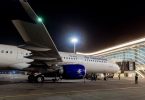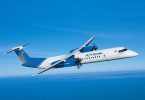Dallas — Any stimulus package to kick-start the U.S. economy should include money to upgrade airports, runways and other portions of the nation’s aviation infrastructure, said the top executive of American Airlines.
The airline industry should not expect direct payments from a government stimulus bill, said Gerard Arpey, chief executive of the Fort Worth-based airline. But he said there are other ways to help the nation’s airlines cope with the downturn.
“I think the airline industry should certainly be at the top of the list of the industries that are deserving of economic stimulus as it relates to infrastructure,” he said. “Because we have let the infrastructure in aviation deteriorate, both on the ground and in terms of the air traffic control environment.”
Arpey spoke to reporters after appearing on an executive panel Tuesday morning at an event hosted by the Dallas Business Journal.
He said it is looking “increasingly likely” that Congress will pass a spending package early next year designed to stimulate the sagging economy. President-elect Barack Obama has proposed a $700 billion program that would include money for a variety of public-works projects.
“I think we need to be actively engaged in the stimulus discussions,” Arpey said. “I would like to think that the airline industry would merit a great deal of attention.”
He said a package could focus on areas like airport runways and control towers, security enhancements for passenger and cargo facilities, and upgrades to the air traffic control system.
“There’s a long list of infrastructure needs in the industry right now,” he said.
Arpey also said that American got a “running start” on its reaction to the downturn earlier this year, when it announced plans to cut passenger capacity and raise customer fees.
Those moves were largely in response to high fuel prices. But while the cost of fuel has dropped dramatically in recent weeks, so has demand for travel.
“We seem to have experienced an almost seamless transition in which our fuel cost crisis has been replaced by a potential air travel demand crisis,” he said. “Now, I would have preferred a little downtime between crises, but that’s life in the airline business.”
The International Air Transport Association said Tuesday that the global airline industry will lose up to $2.5 billion next year.
“The outlook is bleak,” Giovanni Bisignani, the association’s chief executive, said in a prepared statement.
“The chronic industry crisis will continue into 2009 with $2.5 billion in losses,” he said. “We face the worst revenue environment in 50 years.”
American cut its overall passenger capacity by 8 percent this year and is planning additional cuts of up to 6 percent in 2009.
It could reduce flights further, Arpey said, noting that schedulers are working in “real time” to monitor demand and eliminate unprofitable routes.
“Things are a lot more dynamic right now than they have been historically,” he said.
Shares of AMR Corp., American’s parent company (ticker: AMR), closed at $9.62 in trading Tuesday, down 52 cents.





















